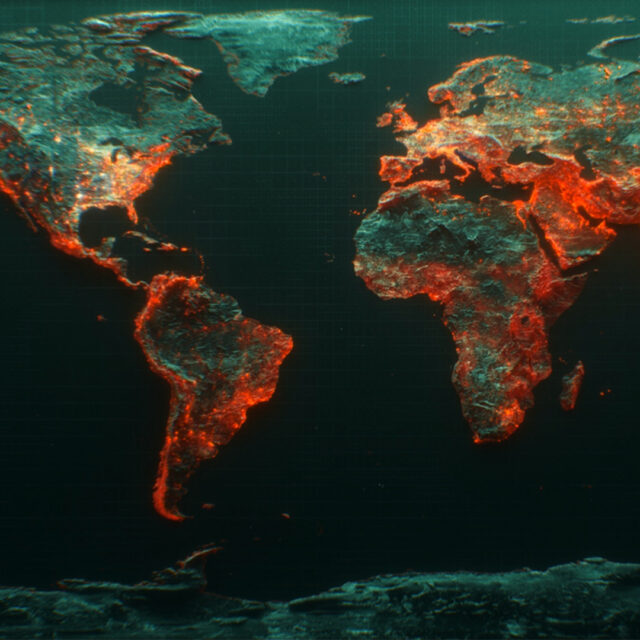Dame Minouche Shafik is the director of the London School of Economics. We interviewed Dame Minouche as part of our #PassTheMic series.
Here’s some of what she had to say in the interview.
The biggest challenge we currently face with coronavirus is — and it seems obvious to say this — that it’s a global pandemic. So unless we solve it everywhere, we will never solve it.
On the health side, a global response is essential for solving this pandemic. Otherwise, it will just move around the world and emerge again in the weakest link.
On the economic side, I think the difference is whether we come out of this crisis with damaged economies, with very weak prospects for growth. Or whether we come out with damaged economies — but with hope.
The risk of turning inward
We know from history that periods of protectionism or turning inwards result in lower economic growth.
The real risk of this crisis is that everyone turns inwards. That would mean countries starting to have more protectionist policies, banning people from travelling, and hoarding supplies of goods under the guise of self-sufficiency.
We know from history that those periods of protectionism or turning inwards result in lower economic growth. We saw this after the Great Depression, when it took decades to recover. So if we want a quicker recovery, we need to have a more open and global response.
Government responses so far have been very nationally focused. Everyone has been looking after their own, which is a natural human response to a crisis. But it is the wrong response in this crisis. Because simply looking after your own will not solve the global health problem, nor is it the right response from an economic well-being perspective.
It’s very clear that countries’ abilities to respond to this crisis has depended very much on their fiscal position and budgetary situation. Even in high-income countries, if you look in Europe for example, Italy and Spain were much more constrained in how they could support their economies than countries like Germany or the Netherlands.
In Africa, some countries are highly constrained in their ability to respond to this crisis. The quickest way to enable them to respond is to give them debt relief, so that the money can be spent on community health workers, drugs, personal protective equipment, and masks. As China has now emerged as the biggest creditor to Africa, it has a vital role to play in supporting that kind of debt relief.
Priorities for a global response
The number one global priority is finding a vaccine and making it accessible and available in an affordable fashion to everyone.
In terms of the economics, the top priority is probably debt relief for the poorest countries, because it’s quick. What I would do is use that debt relief to provide urgent health spending, but also provide cash transfers to the poorest households in the world in countries like Zimbabwe, Tanzania, and Ethiopia.
Just US$5 a month could make the difference between a household having adequate nutrition or not.
The risk if there isn’t a coordinated global response
There are two big risks if we don’t have a coordinated response to coronavirus. One is that the disease doesn’t ever disappear, and it keeps coming back because it continues to spread in poor and vulnerable countries.
And on the economic side, it means we have an incredibly slow recovery from this crisis and we’re all economically worse off, because countries’ responses are nationalist, protectionist, and inward looking, as opposed to looking outward.
Simply looking after your own will not solve the global health problem, nor is it the right response from an economic well-being perspective.
My optimism right now comes from seeing how every crisis does have a silver lining, and we’re all learning how adaptable we can be. There are some positive things that we are all learning from this, like we don’t need to travel as much to communicate with people from all over the world.
In terms of my worries, crises bring out the best and the worst in people. I just read a very depressing study done in Germany, which showed that the parts of the country that were the most affected by the Spanish flu were more likely to vote for the Nazis at time of World War II. There is a risk that’s relevant during times like this, that it brings out the worst in people.
That’s what we have to fight against.
These excerpts from the interview were edited for length and clarity.
Hear more from experts in our #PassTheMic campaign, where global health experts take over celebrities’ social media channels to share the data, facts, and science we need to know to end COVID-19. Follow us on Instagram, Facebook, and Twitter for more.



